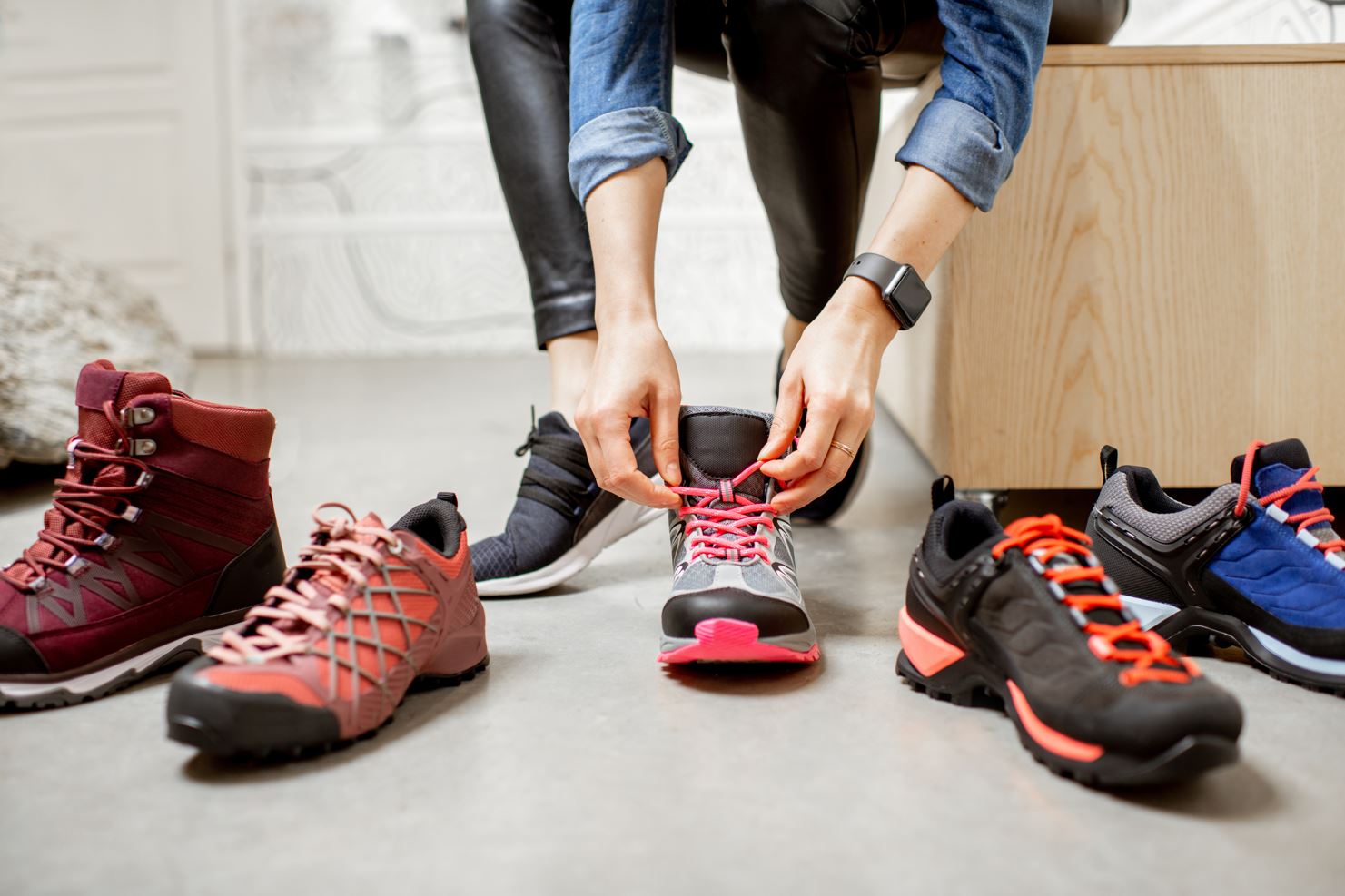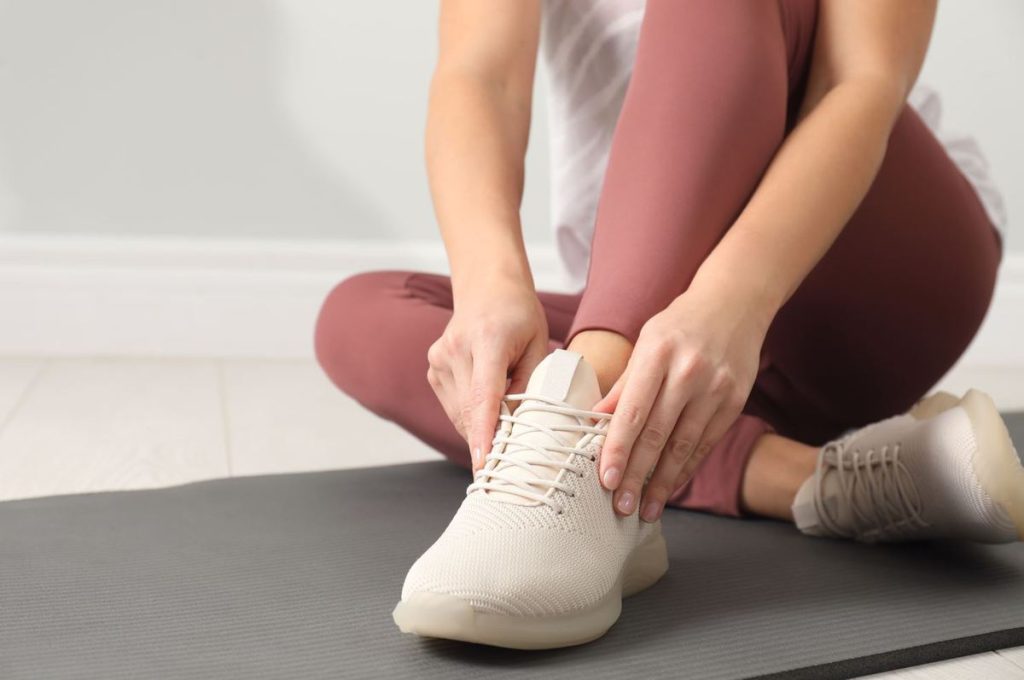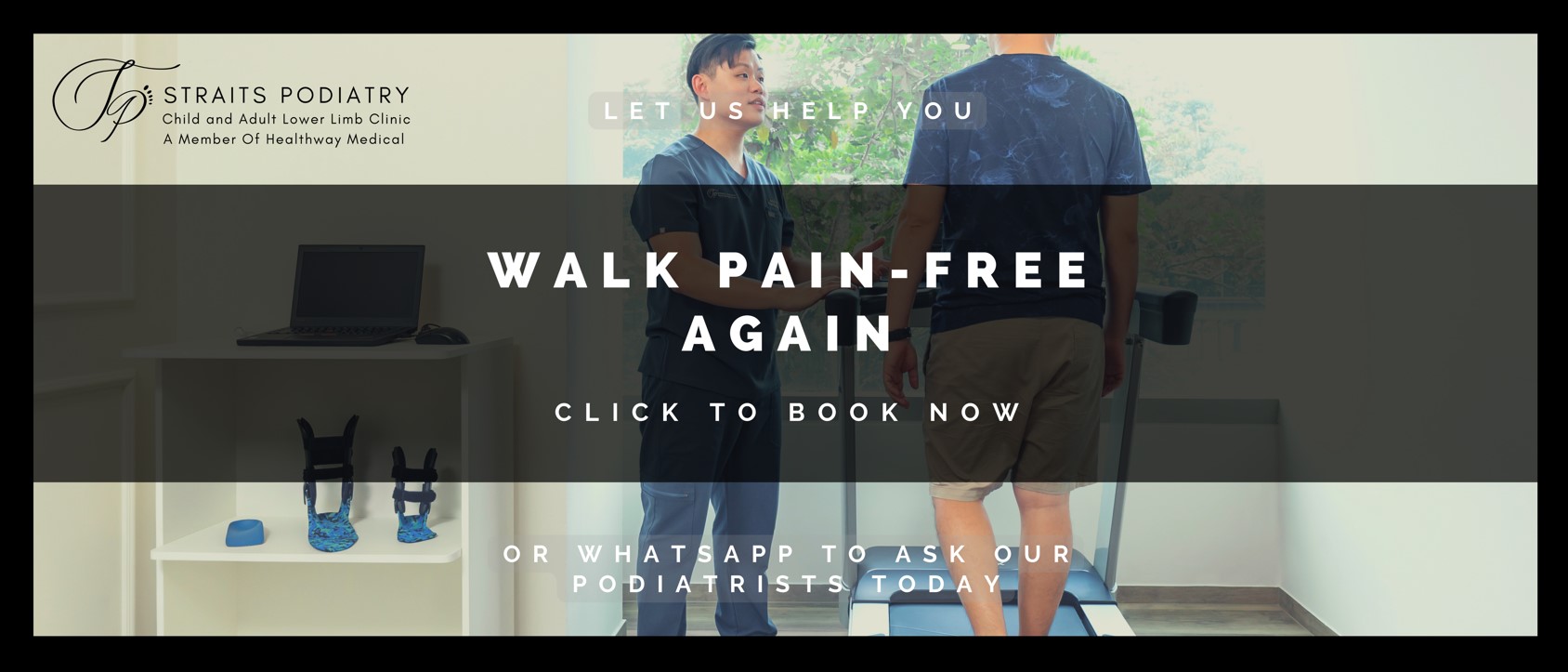Choosing the right type of shoe provides a range of benefits such as comfort, and support, and reduces the risk of foot injuries. However, most people find it difficult to select the right pair of shoes for their feet. So, here are some valuable tips from a Podiatrist:
1. Shoes for flat feet (Overpronators)
Individuals with flat feet have low or no arches, and their ankles roll inwards excessively (overpronation) when they walk. For mild-to-moderate flat feet, stability shoes are recommended as they are designed to reduce the amount of pronation. Reducing pronation helps to reduce the stress on our bones, joints, tendons, and muscles. For severely flat feet, look for shoes that have motion control features, such as a firm midsole, and a stiff heel counter to help stabilize your feet. Also, shoes for flat feet should come with a straight last (the shape of the shoe) to provide more support for your flat feet.
2. Shoes for high arch feet (Underpronators)
Individuals with high arch feet have well-defined arches such that only the heel and the ball of the feet touch the ground. For high-arch feet, we generally recommend shoes with good cushioning properties. Look for shoes with a curved last, which contours the foot and helps distribute pressure across the foot better. Adding cushioned insoles into the shoes can also help provide extra comfort.

3. Individuals with wider feet
Choosing the right shoe width can help prevent common foot conditions such as bunions and Morton’s neuroma. Individuals with wide feet should look for shoes with a wider toe box, such as shoes with a rounded or square toe box. Also, shoes with a softer upper can help accommodate the shape of your foot. It is essential not to buy a larger shoe size just to fit the width of your feet. Most people do not know that there are different sizes for the width. For ladies, wide-fitting shoes are labelled as “D” width, and for men, look for “2E” or “4E”.
Need Help? See A Podiatrist Today
4. Always try before buying
Everyone’s feet are unique, so it is essential to try on shoes and see how they feel before buying. Therefore, we generally do not recommend buying shoes online. If you have a specific foot condition, deformity, or injury, it is best to consult with a Podiatrist or healthcare professional for personalized shoe recommendations.





